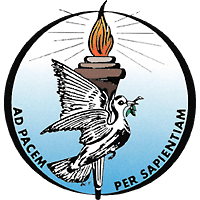|

INTRODUCTION
OBJECTIVES
THE VERBANIA
DECLARATION
SPEAKERS
SPONSORS
& PATRONS
|
Michele SCHIAVONE, born in
Milan, on September 3, 1929, took philosophy’s degree.
In 1958 qualified as a
university teacher in History of Philosophy.
In 1966 became Professor
in History of Philosophy at the University of Genoa.
Successively, on November
1, 1970, he held the chair of Moral Philosophy and after, on November 1,
1978, History of Philosophy again.
He was dean of Education
from 1968 to 1973, Director of the Institute of Philosophy from 1966 to
1973, Director of the Department of of Science of Cognitive Processes
from 1987 to 1995.
Actually he is coordinator
of the doctor’s degree in bioethics and clinical experimentation in
oncology at the University of Genoa, member of the National Committee of
Bioethics, coordinating the working party on the mental patient, member
of the Ethical Commission of the Italian Society of Psychiatry (S.I.P.),
President of the Ethical Committee of the Lombard Regional Branch of the
S.I.P., member of the Scientific Committee of numerous reviews of
Psychiatry.
Since 1996 he is Professor
of Bioethics (r. F22b).
He is the author of
numerous scientific publications and speaker from several years at
International and national meetings of Psychiatry, Bioethics and Legal
Medicine.
Ecology, Quality of
Life and Mental Health:
the Bioethical Dimension
The present possibilities of manipulating Nature, living beings and even
the human body and, even more, the possibility of [incidere?] over many
important aspects of a human being’s quality of life (medical
activities, social behaviours, the environment, etc.) have deeply
altered the traditional approach of subjugation that human beings have
towards Nature. Human health, well-being and – in more ample terms –
quality of life are otherwise conditions closely connected not only with
scientific and technological development, but also – and perhaps even in
more relevant and evident ways – with the achievement of an increasingly
more balanced relationship with and correspondence to the environment.
In that sense, what seems to emerge in an absolutely evident manner is
not so much the existing delay between scientific innovation and social
response but rather the difficulty in establishing a harmonious rapport
between tecno-scientific evolution and social control (intended as
active and critical participation in such a process). The overbearing
acceleration of scientific and technological research occurred in the
last decades seems not to allow any longer a sufficient critical
elaboration on the part of human beings in the confrontation of the
exponential quantity of information, knowledge and novelties which
appear daily. The gap between the continuous innnovations brought about
by new biological technologies and the human experiential and cognitive
dimension necessary to maintain a balanced raport with one’s own body
and the surrounding environment seems to increase ever more.
Thus, there must not only
be a demand for controls for a responsible technological evolution, but,
even more, the building of a more ample thinking paradigm, which
comprehends and sets in relation science, technology and collectivity.
The ‘Manifesto di San Marino’, approved by the National Direction
Council of the ‘Societa Italiana di Ecologia, Psichiatria e Salute
Mentale’, as well as by the Executive Committee of the WPA Section on
Ecology Psychiatry and Mental Health proposes the promotion of
instruments which may prevent discomforts and mental disturbances which
are correlates of environmental influences, as well as instruments which
promote a better quality of life. Actually, the possibilities offered by
Science call the collectivity to assume precise responsibilities for
singling out criteria for choosing the approach to be given to
scientific development in order to conjugate scientific and
technological progress with fundamental human values, and to allow a
full affirmation of the freedoms against abuses, injustices and dangers. |